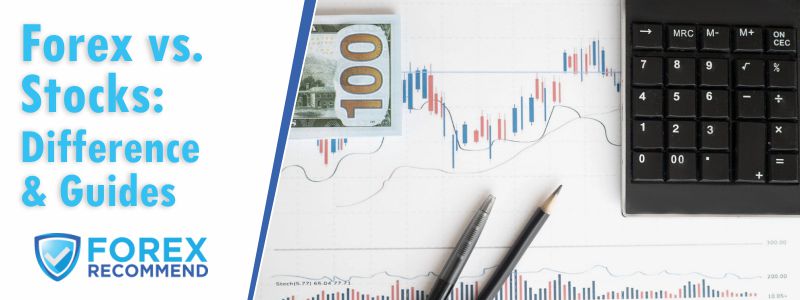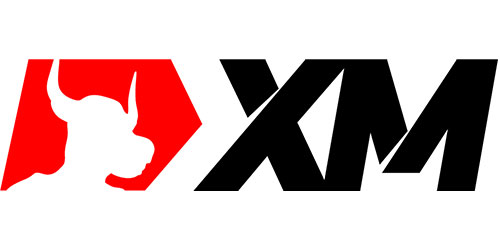 Both the stock market as well as the foreign exchange market are extremely popular marketplaces for securities traders. Leverage is a major factor in some traders' decisions to trade currencies instead of the stock market. However, the stock market's well-established regulatory framework is preferred by others.
Both the stock market as well as the foreign exchange market are extremely popular marketplaces for securities traders. Leverage is a major factor in some traders' decisions to trade currencies instead of the stock market. However, the stock market's well-established regulatory framework is preferred by others.
As with most investments, the rise of online investment platforms has accelerated the growth of the currency trading and stock trading markets. Despite there being an inherent difference between forex and stocks, both markets have a surprising number of similarities.
Forex and stocks have a lot in common when it comes to how they fit into the overall investment strategy of every currency or stock trader. Both the stock market and the foreign currency markets are high-risk, high-reward investments.
Stocks and foreign exchange rates move at a quicker pace than other types of assets, with continual value fluctuations throughout the day.
However, the risk tolerance and trading style of the trader or investor are the most crucial factors that might influence their decision. Short-term active traders, such as swing, day, and scalp traders, could favor forex because of its greater price volatility, whereas long-term investors may choose the stock market.
Top 10 Forex Brokers
Broker
Rating
Regulators
Min Deposit
Leverage
Website
Top 10 Forex Brokers
Broker
Rating
Min Deposit
Leverage
What are the largest differences between Forex and Stocks?
The key differences between the forex and the stock markets relate to the following components.
1. Leverage Limits
2. Volatility and Liquidity
3. Trade Pairings
4. Market Trading Hours
5. Asset Volume
6. Trading Strategies
7. Commission
8. Level of Focus
1. Leverage Limits
Leverage in trading, or margin trading, is an important consideration when comparing the forex market to the stock market.
A deposit is a modest proportion of the total transaction value that traders might invest when opening a spread betting or CFD trading account.
In this way, traders can increase their earnings by trading both equities and forex. However, this might have the reverse effect, resulting in increased losses.
Traders using a margin trading account can often only use 2:1 leverage in stock trading. If retail stock traders open and close their trades in a single day and have an account balance of at least $25,000, they could qualify to trade with leverage of up to 4:2.
However, before achieving this, traders must qualify and meet a wide range of criteria, which is not easy to do, and it is not achievable by beginner traders.
Forex trading is entirely different from trading stocks or other financial instruments. Traders must register a forex trading account with a broker to use leverage.
There are no prerequisites for applying and leverage typically depends on the broker and the region in which the trader resides, with most brokers offering 1:100 to 1:200 to retail traders, while others offer much higher than that.
2. Volatility and Liquidity
Volatility refers to the short-term fluctuation of securities prices in financial markets. Where making a profit is concerned in the financial markets for short periods, some traders depend on volatility, while others choose to invest in less volatile and riskier options.
Volatility could either assist or hurt traders, depending on how well they execute their trades. When it comes to Forex trading, liquidity is a major consideration since it implies that an item may be purchased and sold quickly without having much of an impact on its value.
As a result, excessive market volatility is more likely to benefit traders who are interested in making short-term investments.
In turbulent markets, several forex strategies seek to initiate and exit trades quickly, to profit from modest price swings. They can enter and exit deals quickly and accurately because of this.
3. Trade Pairings
When it comes to foreign exchange trading, currencies are usually quoted in pairs. When carrying out analysis, traders must consider both the economic health of the nation whose currency is being traded along with the overall economic health of the country against which the trader is trading.
The foreign exchange market is sometimes more sensitive to changing political and economic conditions in other nations. In terms of geopolitics, the overall stock market is not exempt, although it tends to be less affected by political events than other markets across the world.
4. Market Trading Hours
Stock markets are more accessible than currency markets. From Monday through Friday, stock trades may be conducted almost 24 hours a day, although access to all markets is difficult.
There is a big trading window in the United States from 9:30 am to 4:00 pm Eastern Standard Time (EST). Even though the “after-hours” trading sector is smaller, its lack of liquidity and other concerns make it less popular than normal trading hours.
However, trading foreign exchange (forex) is far more convenient since it can be done 24 hours a day, seven days a week, seven days a week.
There are several forex trading institutions throughout the world; therefore, it is always market time, regardless of where you are in the globe.
5. Asset Volume
The sheer number of assets that may be traded in forex is one of the most alluring aspects of the market. Major, minor, and exotic currency pairings are all available to traders via forex brokers.
The major forex currencies that are being traded include the EUR/USD and GBPJPY, and they have a reputation for being steady in the currency market.
Stock market possibilities abound, but they pale in comparison to the over $6 trillion in forex transaction volume that occurs each day.
In the technological, pharmaceutical, and automotive sectors, thousands of worldwide shares may be traded. Both blue-chip and penny stocks are included in this category.
The stock market is home to some of the world's most prestigious indexes, including the Dow Jones and S&P 500.
However, the quantity of shares listed on the stock exchange is not always considered as a benefit in comparison to trading in foreign exchange.
When looking for an investment, some traders choose to stick with a few well-known and well-known forex pairings rather than picking between new and developing stock options.
ETF trading is a popular way to trade equities via forex. An ETF is an investment vehicle that holds a collection of assets and functions in the same manner as a stock.
When traders participate in either spread betting (only for UK residents) or CFDs, they are not given any ownership of the underlying stock, while trading ETFs gives the trader some ownership of the stock. ETFs are a valuable tool for stock traders since they seek to establish long-term holdings in the stock market.
6. Trading Strategies
Another significant distinction between the forex market and the stock market is the abundance of materials and tactics developed specifically for FX traders.
There are several short-term trading tactics in forex, such as day trading, swing trading, and scalping. It is possible to apply the principles of day trading and swing trading to the stock market.
However, stock trading-oriented tactics are less frequent since long-term holdings inequities are more widespread, while currency pairings are more popular among short-term traders in turbulent markets.
Forex trading may have an edge over stock trading because of the number of materials and advice on how to thrive in the market.
7. Commission
Rather than charging a fee, most forex brokers earn their margin on the spread, the difference between the bid and the ask price of a currency pair. Traders are often subject to the spread and a fee to their broker when trading stocks or futures contracts or a large index like the S&P 500.
When compared to the expenses of trading other contracts, forex spreads are transparent and much more cost-effective, especially on liquid pairs such as EUR/USD.
8. Level of Focus
There are just eight main currencies for currency traders to concentrate on, but there are hundreds in the stock market.
Traders will search for diverging and converging patterns between the foreign currencies, allowing traders to match up a forex pair to trade since there are only eight economies to concentrate on and because forex is transacted in pairs.
It is far simpler to maintain track of eight currencies than tens of thousands of equities.
Which should you trade, Forex or Stocks?
Every trader's unique trading objectives and chosen trading style will play a significant role in determining whether they decide to trade Forex or stocks.
Traders must decide on their trading horizon and their trading style according to this, between short-term, medium, and long-term. In comparison to stock market trading, forex trading offers several advantages, including the ability to trade at any time, reduced transaction costs, and a larger daily turnover.
However, if traders are interested in longer-term trades in a well-regulated market, they should opt for stocks. Traders must consider that trading in both these markets requires some skills.
What are the trading strategies involved with Forex and Stocks?
There are several trading strategies that traders can use in both the forex and the stock markets. However, most trading strategies can be divided into three-time horizons, namely short-, medium-, and long-term strategies,
Between these three strategies, there are advantages, disadvantages, and the type of market in which they can be best applied.
1. Short-Term Trading
2. Medium-Term Trading
3. Long-Term Trading
1. Short-Term Trading: Short-term traders are also known as scalpers and this trading style focuses on opening and closing trades within minutes, a few times a day, during a single trading day. By doing this, traders can benefit from small price movements in the market.
The advantage of short-term trading is that it offers trader's the opportunity to focus on volatility instead of fundamental variables that influence the overall market.
The disadvantages surround the fact that traders are placing more trades, leading to beginner traders being exposed to the risk of loss because they do not have a well-established and tested trading strategy.
In terms of using this strategy in forex or stocks, forex markets are more suitable for scalping because it is a cheaper market for executing positions.
When trading stocks, some exchanges can require that traders have larger capital account balances. In contrast, forex brokers accept much lower minimum deposits to sustain margin requirements on trades.
2. Medium-Term Trading: This trading style involves traders looking to hold their positions for a few days or weeks, where their trades are executed according to technical factors and technical indicators that signal buy/sell actions.
The advantage of medium-term strategies is that there are much lower capital requirements as opposed to other styles, attributable to the fact that medium-term traders seek larger moves in the market.
The disadvantage of this style is that trades must be accompanied by effective market analysis, which can be time-consuming, and requires some knowledge of trading.
Medium-term trading is a trading style that is perfectly suited to both forex and stock trading.
3. Long-Term Trading: This trading style involves traders holding their positions over months or even years. Trading decisions are often determined by long-term fundamental factors.
The advantage of this trading style is that traders need not spend a lot of time analyzing the market conditions or pouring over charts to indicate short-term fluctuations.
The disadvantage with this trading style is that traders often need to have large amounts of capital to cover possible volatile market movements.
This trading style is suited more towards stock trading, attributable to the fact that the forex market is too volatile, and the market can vary in any direction, more so than the stock market.
How can you make a profit on Forex and Stocks?
There is no guaranteed way to secure profits in either the forex or the stock market. However, there are some tips and guidelines that traders can follow to increase their chances of securing profits in each market.
1. Forex Market
2. Stock Market
1. Forex Market: Preparation is key when entering the Forex market. With a practice account, traders need not have to worry about losing money until they are more familiar with the markets. A practice account can also help experienced traders prepare by giving them an ideal environment in which they can test their trading strategies before they risk real money.
There are a lot of people who feel concerned when things do not go their way right away in the Forex market or when they make a modest profit that might have been much larger if they had used proper risk-reduction tactics, something that is especially true for novice traders.
To make money as a trader, it is best to make a lot of modest deals in diverse markets where the connection between markets is minimal.
Traders should never put all their money into a single transaction. Instead, they should learn how to use trailing stops and stop and limit orders to ensure a profit on an already lucrative transaction, as well as how to minimize losses.
2. Stock Market: If you want to earn money in the stock market, invest and hold onto the investment. The longer time that traders keep their investment, the more likely it is that their assets will appreciate.
The finest firms have a history of increasing their profits, and investors respond to this by increasing the value of their shares. Investors who own the shares will see a profit because of the increased price.
Traders can also get dividends if the firm pays them if they stay in the market for an extended time. Daily, weekly, or monthly trading means that traders could miss out on dividends since they will not be invested in the company at the right times to benefit from the distributions.
When should you consider Forex Trading?
Large transactions may be easily managed due to the forex market's relative lack of regulation and the great degree of potential leverage.
To trade like a professional in the forex market, you do not need credentials or a large sum of money; nevertheless, to do so in the stock market, you will need both. You should choose forex trading if you are keen to begin trading significant sums of money.
When should you consider Stock Trading?
When it comes to stock trading, it is a lot simpler to understand. While a greater understanding of the economy is always helpful, the idea of purchasing stock is a straightforward one because you are acquiring ownership of a portion of a firm.
There is a strong level of regulation in the financial markets, which might put some traders at rest and allow them to concentrate on their trading plan.
However, because of the way currency pairing works, short traders may discover that stock trading involves higher risk. Taking short positions in a falling stock market is a way to gain money, but it comes with additional dangers.
Which is more profitable, Forex or Stock Market?
Forex is more lucrative than stocks if you aim to create tiny, regular gains from price swings utilizing short-term tactics. The volatility of the forex market is significantly greater than that of the stock market, where a skilled trader with focus may easily profit.
With its enormous leverage and lack of attention on risk management, forex is a high-risk investment that might have negative consequences, depending on the risk tolerance of traders.
The stock market is an inherently safer and more regulated choice for long-term investment if you want to acquire and hold holdings. If a stock is successful, this may lead to even higher earnings over time.
Investing in stocks and FX may be lucrative if you use a variety of tactics and develop a certain amount of forbearance along the way.
Which is easier to trade, the Forex or the Stock Market?
Forex trading is easier than stock trading based on these factors.
- Easier to choose assets to trade, with most traders trading major currency pairs such as EUR/USD when they start because this pair has the highest liquidity and is the cheapest.
- Forex trading is available 24/5, making it easier for traders to join the market and trade without restrictions, regardless of the time of day, except for weekends and public holidays.
- Traders can use technical analysis to help them determine ideal times to enter or exit the market. There are also several risk management tools that they can use in combination to maximize their profit potential while minimizing their losses.
- The forex market has higher liquidity because it has a larger trading volume, which means that traders do not have problems converting their assets into cash.
- There is a higher maximum leverage ratio offered in forex trading, making it easier for traders to open large positions and to increase their chances of making large profits.
What are the Risks Involved with the Forex or Stock Market?
There are always risks involved with trading regardless of the financial market. Below, we will explore the risks associated with both the forex and the stock market.
1. Forex Market
2. Stock Market
1. Forex Market: Forex traders are often faced with the following inherent risks when they trade a range of currency pairs.
- Leverage Risks. While leverage can help traders maximize their profit potential, traders need to be careful with leverage because it is a double-edged sword. During volatile market situations, excessive usage of leverage may result in large losses more than the original investment.
- Interest Rate Risks. Interests rates influence the exchange rates of currencies. If the interest rate of a country increases, it will lead to that currency strengthening because of the increased investments in that country, attributable to stronger currencies ensuring higher returns. If the interest rate falls, the currency weakens, and investors will subsequently withdraw their investments.
- Transaction Risks. These are exchange rate risks that are involved with time differences between the start and settlement date of a contract. When there is a time difference between the opening and the closing of a contract, transaction risk increases.
- Counterparty Risk. This refers to the company that provides traders with assets to traders.
- Country Risk. When traders evaluate which currency pair to trade, they must evaluate the overall structure and the stability of their issuing country. Exchange rates in many third-world countries are fixed to the dominating currency, in this case, the US Dollar. This means that the central bank of each country must sustain reserves so that the exchange rate remains fixed.
2. Stock Market: Risks that traders in the stock market can face include the following.
- Commodity Price Risk. This refers to the fluctuation in the prices of commodities that could affect the overall business. When prices increase, companies that sell commodities will benefit. However, when prices fall, the opposite is true.
- Headline Risk. This relates to the risk that news releases and media releases could influence the business of a company.
- Rating Risks. This is a problem when a company is given a certain rating that they must achieve or retain, for instance, credit ratings. This rating can directly influence the price that a business will pay for financing.
- Obsolensce Risk. This relates to the risks that companies face with the overall age of the company, with companies facing the risk that a competitor could make a similar product or provide a similar service at a much lower price.
- Detection Risk. This relates to the risk that auditors, regulators, compliance programs, or any other authority could find inconsistencies in the company, leading to damages to the company's reputation.
- Legislative Risk. This involves the tentative relationship which exists between the company and the government.
- Inflationary Risk and Interest Rate Risk. These risks can be divided, or they could apply in tandem. Interest rate risk refers to the issues faced with increasing interest rates, causing companies to seek financing. If these increases happen when there is increased inflation, the rising rates could be used to fight inflation.
- Model Risk. This refers to the risks involved with assuming the underlying economy as well as business models, which could be wrong. If the models are wrong, the companies that rely on them could face losses.
What should a beginner trader know about the Forex and Stock Market?
In terms of trading forex, novice traders must remember these key factors.
- Knowledge is power and in addition to basic trading procedures, traders must remain informed in market news and events that could influence their trading.
- Keep a risk-reward ratio and never put everything on a single trade.
- Traders should set aside time for their trading and time to take a break.
- Forex traders must start small and use correct position sizing.
- Traders should time their trades to avoid common mistakes such as emotional trading or overtrading.
- Traders must use risk management tools such as stop-losses, limit orders, and other useful tools.
- Traders must remain realistic about their profits.
- Traders must keep a journal in which they record their losses, wins, and everything about their trading.
In terms of stock trading, beginner traders should consider the following.
- Choose the right investment by analyzing companies and considering their past performance.
- Novice traders should focus on mutual funds, exchange-traded funds (ETFs), and index funds instead of individual stocks until they can perform in-depth analysis to determine the right stocks to choose.
- Traders should keep a diversified investment portfolio and ask for investment advice from professionals.
- Traders must always be prepared for a downturn.
- Traders must always try a demo account before they risk real money.
- Traders should remain committed if they have a long-term portfolio, adding to their investment slowly.
- Traders need to avoid short-term trading in stocks because it is an expensive activity that can deplete their funds quickly.
Table of Contents













